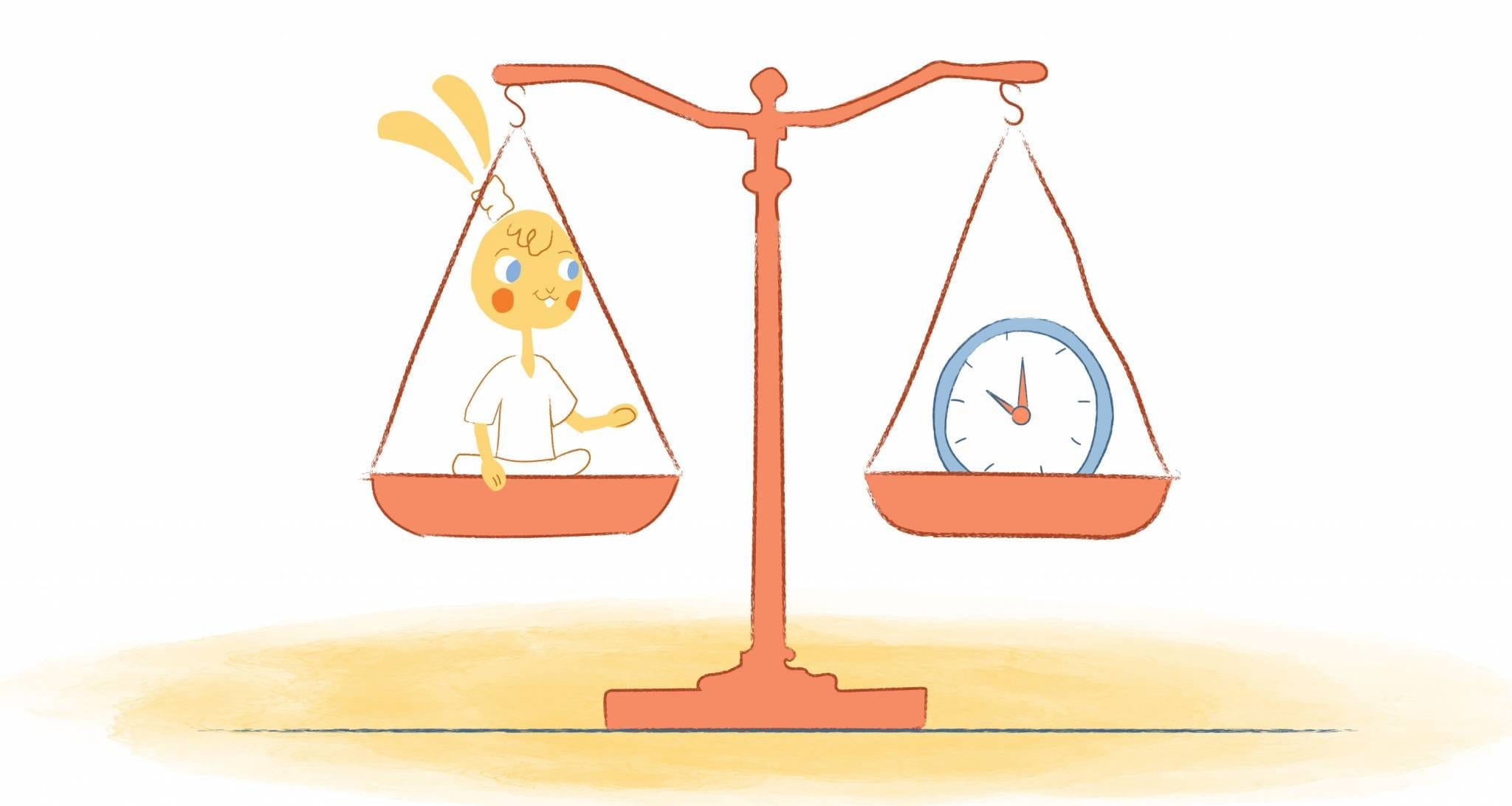

Do you sometimes feel like your Phil Connors in “Groundhog Day?” Right now, during quarantine, I certainly do. You know. You are seemingly living the same day over and over again.
Whether if you’re in a rut or working from home, it can certainly feel as if every day is the same. As a result, it’s pretty easy to lose track of time. But why exactly is this the case? And, how can you snap out of it?
Our experience with time is malleable.
“Perception of time has this ebb and flow,” psychologist J. Devin McAuley, the director of the Timing, Attention, and Perception (TAP) Lab at Michigan State University, told The Cut. “Objective time stays the same, but people’s perception changes based on several different factors,” such as memory and external cues.
According to researchers, there are various mechanisms used to explain how a person perceives time. “One idea is that essentially you have some kind of internal clock that is your internal sense of time, which is clicking along at some rate based on physiology,” McAuley adds. Think back to your daily commute or running errands. You probably stop at the same light so much that you have an idea of how long it takes from it to go from red to green.
But what if your overslept and are rushing to work? Because your internal clock is ticking faster, the light appears to last longer.
The influence of timing mechanisms.
Besides that, some other external factors can throw off your perception of time. Caffeine, stress, exercise, boredom, and even your age are some common examples of these external cues. Or, to put it another way, time flies when you’re having fun and plods along when you’re bored.
Case in point, a study published in Psychophysiology analyzed 42 participants before, during, and after experiencing a version of the Trier Social Stress Test. The results showed that social stress could fluctuate time perception.
In addition to stress, mental representations can also play a role. A study led by psychologist David Ellis from the University of Lincoln in the UK shows that people tend to forget what day of the week it is because of our feelings associated with them.
Days of the week matter too.
“Midweek days are confusable because their mental representations are sparse and similar,” explains the team’s final report in PLoS ONE. “Mondays and Fridays are less confusable because their mental representations are rich and distinctive, forming two extremes along a continuum of change.” For example, terms like ‘boring,’ ‘hectic’ and ‘tired’ were associated with Mondays, while Fridays were linked to more positive words like ‘party,’ ‘freedom’ and ‘release.’
“Indeed, more than a third of participants reported that the current day felt like a different day, and most of those feelings were on Tuesdays, Wednesdays, and Thursdays, reflecting the midweek dip in associations attached to different days,” added Ellis.
“Our research implies that time cycles can shape cognition even when they are socially constructed. The Bank Holiday effect implies that apparent weekday is not determined solely by the seven days of the weekly cycle: transitions between the working week and weekend also play a role.”
In other words, if you’re returning from a long weekend or vacation, “your body’s complex system of time processing — and your subjective impression of the length of the workweek — may be thrown out of whack,” writes Stephanie Bucklin.
Routines have been broken.
Routines tend to change. That’s just a part of life. Think about chaotic things are in your home when your kids go back to school, or you’ve had to change shifts at work. Or, like most of us, you’re working from home because of COVID-19.
But, how does this influence how we can keep track of time?
“You naturally did something different on work-out days, for example, like you packed a gym bag, or waked up earlier, which made those days distinctive,” Zainab Delawalla, a clinical psychologist, told HuffPost. “You knew it was Thursday, not only by looking at your calendar, but because on Thursdays, you set your alarm for 7 am instead of 7:30 am, or you picked up bagels for the team on your way into work.”
“Without these distinctions, all the days ‘feel’ the same, and it’s hard to keep track,” she added. Even worse, when routines have been broken, this can negatively impact your productivity, health, and well-being.
Interference in Our Sleep Schedules.
What does sleep have to do with telling time? It’s essential to keep your habits changing for the better. Well, it’s all about circadian rhythms and our internal master clock.
According to the National Institute of General Medical Sciences, “A master clock in the brain coordinates all the biological clocks in a living thing, keeping the clocks in sync. Invertebrate animals, including humans, the master clock is a group of about 20,000 nerve cells (neurons) that form a structure called the suprachiasmatic nucleus, or SCN. The SCN is located in a part of the brain called the hypothalamus and receives direct input from the eyes.”
It’s your master clock that controls your circadian rhythms. So, interferences like daylight savings time and traveling to a different time zone can mess with this natural rhythm that regulates your biological — which we aren’t doing too much of these days.
And, COVID-19 is also disrupting our internal biological clocks. How so? Between new sleep schedules, insomnia, and increased exposure to blue light from the devices that we’re attached to. “And with much of our time spent indoors, we are limiting our exposure to natural light, which is an important external factor in resetting our circadian rhythms,” Delawalla said.
No separation between work and play.
“If you worked Monday through Friday at a certain location, then the weekends marked a change, “said psychologist Rebecca Leslie of Living Fully Psychological Services. “If you are now working from home and have nothing different that happens on the weekend, there is nothing to signify a change in days.”
The same is true if you’re working more then usual. Examples could be putting in 7-day workweeks when launching a product or currently working from home while self-isolating. As a result, the timing of days can get confusing because there isn’t an end to either the workday or week.
Your “anchoring” is off.
“Essentially, your weekly mental calendar is anchored by Saturday and Sunday,” explains Richard A. Block, a professor emeritus of psychology at Montana State University who studies the psychology of time. Because Tuesday, Wednesday, and Thursday are smack-dab in the middle of your routine, they will usually blend together.
But, what happens when you lose sight of these anchoring cues? Obviously, it’s going to make it more challenging to keep track of the days of the week.
To back this claim up, Block mentions a study published in Memory and Cognition back in 1974. Researchers asked students on a college campus, “What day is today?” Asher Koriat and Baruch Fischhoff, the authors of the study, found that when people were further away from the weekend, they had difficulty remembering the day of the week.
To make matters worse, these anchoring cures could get thrown off even more. For example, a long weekend throws or having your trash/recycle day pushed back a day due to a holiday can cause some slight confusion.
“Days of the week is another set of temporal markers that don’t really have inherent meaning on their own,” says Anne Wilson, a professor at the Wilfrid Laurier University in Waterloo, Ontario, and director of the Identity, Motivation, and Perception Extended in Time and Society (IMPETuS) lab. “We often recall the correct day of the week because it follows the same pattern every week.” That explains why any temporary disruption can throw us off.
How can you avoid losing track of time?
The prominent place to start is to add structure to your life. If possible, try to stick to your previous routine. For example, if you woke-up at 7 am and then leaped into your morning routine, then keep that up. If you held team meetings on Tuesdays at 2 pm, then maintain that recurring event. Keep in mind that your time is still significant. Treat your time as essential.
At the same time, you may have to be flexible. Take having to learn how to work from home with children. You’re probably going to have to adjust your schedule. Next, you’ll want to block out your day so that you can still get things done while teaching your children.
It’s also vital that you block out non-work activities and link anchors to them. For example, if you take an afternoon walk, then you could start dinner.
It’s also suggested that you differentiate your days and try out new traditions. An easy way to do to change things up is to create theme days for work, like doing all of your marketing on Mondays and taking all of your meetings on Tuesday. You can also do the same with your downtime, like Taco Tuesdays or taking a virtual fitness class on Wednesdays.
Other recommendations to keep track of your days:
- Making your workdays different from your days off.
- Getting outside every day.
- Adding a self-care routine to your calendar.
- Using grounding exercises like the 5-4-3-2-1 technique.
The most natural solution of all? Look at your calendar every morning to help your brain reset or stay on-track. It also wouldn’t hurt to set reminders for important tasks and events so that you won’t forget about them.
And, finally, make use of temporal landmarks. For example, if last night was Taco Tuesday, then it’s Wednesday. And, remember — we will be back on track soon. We have to!











Deanna Ritchie
Editor-in-Chief at Calendar. Former Editor-in-Chief and writer at Startup Grind. Freelance editor at Entrepreneur.com. Deanna loves to help build startups, and guide them to discover the business value of their online content and social media marketing.